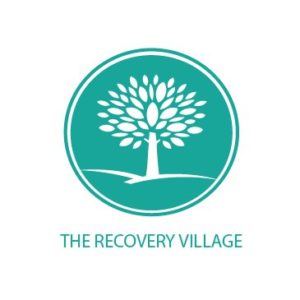
Psychiatric Conditions
Concerned about a friend or family member’s behavior? Worried you might be suffering from a type of mental disorder? Call to speak with Dr. Ahmad and schedule an assessment. There are a variety of different psychiatric conditions; learn more about the following:
Alcohol Abuse
While alcohol abuse is commonly recognized by the general public as a prevalent disorder, the severity of its consequences is often underestimated. 200,000 deaths per year are directly related to alcohol use. 50% of homicides and automobile fatalities involve alcohol consumption. And alcohol abuse in general reduces life expectancy by an average of ten years.
20% of men and 10% of women suffer from alcoholism at some point during their lifetimes. Research suggests a strong genetic component: there is a three to fourfold higher risk of alcoholism in close relatives of alcoholics. The rate of occurrence increases with the number of alcoholic relatives, the severity of their illnesses, and the closeness of their genetic relationships. Children at risk for alcoholism also possess a range of deficits on neurocognitive testing.
The effects of alcoholism present themselves in many warning signs. An alcoholic might show a repeated inability to stop or cut down on drinking, sporadic two day binges of intoxication, amnestic periods (blackouts), work absences or frequent tardiness, uncharacteristic violent behavior, driving while intoxicated, or even simply trying to restrict intake to specific periods during the day.
An alcohol-related disorder diagnosis requires one of the following: a need for daily use of large amounts of alcohol; a regular pattern of heavy drinking limited to weekends; or periods of sobriety interspersed with alcohol binges lasting weeks or even months.
Short term symptoms include:
- Irritability
- Violence
- Depression
Long term symptoms include:
- Increased risk of heart attack
- Increased blood pressure
- Liver damage (inflammation and cirrhosis)
- Gastrointestinal damage (inflammation and ulcers)
- Insomnia
- Anxiety
- Hyperactivity of the nervous system
- Decreased brain functioning because of stiff neuron membranes
Anxiety Disorders
There is a normal level of anxiety that occurs in situations that warrant fear: having to give a speech in front of a large group or a car narrowly missing you when riding a bike. Abnormal anxiety is when you experience symptoms in an everyday situation, like getting on the subway or going to a social event with close friends.
Types of Anxiety Disorders:
- Generalized Anxiety Disorder (GAD)
- Panic Disorder
- Acute Stress Disorder
- Post Traumatic Stress Disorder (PTSD)
- Social Anxiety Disorder
- Phobias
Core symptoms include:
- Nervousness, worry or fear persistent enough to cause some level of functional impairment
- Shame and confusion
Take an Anxiety screening quiz
Learn more about Anxiety Disorders
ADHD/ADD
ADD/ADHD is a disorder that can afflict both children and adults and is generally defined by the three symptoms of inattention, hyperactivity and impulsivity. These symptoms tend to manifest themselves in academic or workplace difficulties—it is harder for a person with ADHD to acquire, retain and display knowledge on a consistent basis.
Symptoms include:
- Feeling restless
- Fidgeting
- Interrupting others
- Difficulty waiting in line
- Difficulty being quiet, even in quiet situations
- Emotional instability
- Aggressive defiance
Take an adult Attention Deficit Disorder screening quiz
Learn more about ADHD
Bipolar Disorder
Bipolar disorder, in simple terms, is a condition where the individual suffers from severe mood swings. The depressive state is characterized by hopelessness and a lack of energy—its clinical features are indistinguishable from major depressive disorder. In fact, depression is frequently the first symptom of bipolar disorder. The manic state may involve feelings of euphoria, excessive goal-driven activity, limitless energy and an inability to sleep. The time between mood shifts depends on the person. It is possible for individuals to experience mixed states with both manic and depressive features (i.e., sad but can’t sleep; hopeless, but going on gambling binges), and some even experience brief—minutes to a few hours—episodes of depression during manic episodes.
Take a Bipolar screening quiz
Learn more about Bipolar Disorder
Eating Disorders/Food Addiction
Unfortunately eating disorders are very common in our society, and both men and women can suffer from them. The two most common disorders are anorexia nervosa and bulimia nervosa. Anorexia is characterized by a person refusing to eat, being terrified of gaining weight, and never feeling “thin enough.” Bulimia is characterized by a person bingeing on a large amount of food and then purging, or throwing up that food. Other less severe eating disorders can include binge eating and eating when depressed or bored.
Take an Eating Disorder screening quiz
Depression
Depression is the most common mood disorder in the world; between 10 and 20% of the U.S. population experiences depression at some point. When feelings of sadness, worthlessness, hopelessness and guilt begin to interfere with your life for weeks or months at a time, you may need to seek help for depression. It is also common for patients to self-medicate with drugs and alcohol before seeking help.
Symptoms include:
- Feeling hopeless, worthless or guilty
- Lack of motivation
- Loss of interest in fun activities
- Decreased sex drive
- Decreased energy
- Insomnia OR oversleeping
- Restlessness, irritability
- Headaches/bodyaches that do not respond to treatment
- Fluctuating eating habits
Take a Depression screening quiz
Learn more about Depression
Personality Disorder
Personality disorders are defined as long-lasting patterns of thought and/or behaviors that can be considered harmful to the person. Generally these disorders are not diagnosed until a person is in their 20s to 30s because these traits are often considered personality flaws or quirks.
Types of Personality Disorders:
- Antisocial Personality Disorder
- Borderline Personality Disorder
- Dependent Personality Disorder
- Multiple Personality or Dissociative Identity Disorder
- Narcissistic Personality Disorder
- Obsessive-Compulsive Personality Disorder (OCD)
- Paranoid Personality Disorder
Take an OCD screening quiz
Schizophrenia
Schizophrenia is often a misunderstood psychiatric condition that can be scary or confusing to friends and family. Symptoms of schizophrenia include disorganized or confusing speech, lack of emotions, hallucinations and delusions. Though there is no cure, it can be managed through therapy and medication.
Take a Schizophrenia screening quiz
Sleep Disorder
Sleep disorders are quite common. The most common sleep disorder is insomnia—difficulty initiating or maintaining sleep. Insomnia is estimated to affect 30-45% of adults and is most frequently caused by anxiety. Other causes include environmental changes and, if the problem is remaining asleep, depression. Patients are often preoccupied with getting enough sleep; the harder they try, the greater their frustration, making sleep more and more elusive. Studies have found both psychopharmacology and certain dietary supplements can ease the symptoms of insomnia.Other common sleep disorders include sleep apnea, narcolepsy and restless legs syndrome.
Sleep disorders may produce additional harmful side effects for our youth. A 2013 study in the scientific journal Pediatrics has linked a lack of sleep to adolescent obesity. Researchers found that additional sleep reduces body mass index, and that the heavier the child, the greater the benefit.

Helpful Websites & Links
COVID-19 Resources
- Betterhelp: Affordable, private online counseling
- CDC: Vaccine information, availability, and appointment
- Jama Network: COVID-19 Q&As (May 2021)
- Mental Health America(MHA): Mental health and wellness coping guides and resources
- MHA: BIPOC and LGBTQ COVID-19 Resources
- Anxiety Test
- Depression test
- PTSD Test
- National Alliance for the Mentally Ill (NAMI): COVID-19 Resource and Information Guide
- NAMI Crisis Text Line: text “HOME” to 741741 to chat with a trained crisis counselor
- NYC Health: Latest COVID-19 Data
- NYC Project Hope: helps people manage and cope with changes brought on by COVID-19
- NYC Well: List of digital mental health resources
- National Suicide Prevention Lifeline: Call 1-800-273-TALK (8255) if you or someone you know is in crisis
- National Domestic Violence Hotline: Call 1-800-799-7233 or text “LOVEIS” to 22522
- National Sexual Assault Hotline: Call 1-800-656-HOPE (4673) or Online Chat
- How Right Now: Tools for meaningful conversations and compassionate listening as coping mechanisms
Mental Health
- Allpsych: A comprehensive list of psychiatric disorders
- American Psychological Association
- Anxiety Disorders: Answers your questions about panic attacks
- Anxiety Disorders Association of America
- Bipolar Disorder: Learn about the disease state of bipolar disorder
- Bipolar Disorder- A Resource Guide: Provides additional links where you can learn more about what bipolar disorder is, as well as statistics and types of bipolar disorders
- Brain and Behavior Research Foundation (NARSAD): Offers a variety of free fact sheets on psychiatric disorders and treatments
- Depression: Informational site about depression
- Depression & Bipolar Support Alliance
- Master of Clinical Psychology: A guide to learning about MS and MA degrees in clinical psychology.
- Medscape- Psychiatry: Provides the latest in research on psychiatry and mental health
- Mental Health America (formerly the National Mental Health Alliance)
- National Alliance for the Mentally Ill (NAMI): Patient support and advocacy group
- Partnership for Workplace Mental Health: A program of the American Psychiatric Foundation, it advances effective employer approaches to mental health by combining the knowledge and experience of the APA and its partners
- NAMI, New York branch
-
- Psychology Today Profile: Dr. Ahmad’s profile page
- Suicide Prevention: National Suicide Prevention Lifeline. 1-800-273-TALK (8255)
Health & Wellness
- Antioxidants
- BMI Calculator: CDC for Adults and Children
- BodyMedia: Provides products that help you understand your body and be more healthy
- Calorie Counter: An online calorie counting tool
- Carbohydrates: Bella Online
- Dietary Guidance: USDA
- Diet Blogs: The best blogs you can subscribe to for diet and health information
- Ediets: An online source for a variety of diet plans, along with nutrition and exercise tips
- Fat Percentage: Sports Fitness
- Fat Percentage: Weight Loss for All
- Free Dieting: An online source for a variety of diet plans, along with nutrition and exercise tips
- Free Radicals
- GotProHealth: Wellness for pro athletes
- GotPro Profile: Dr. Ahmad’s profile page
- HealthCheck Systems
- MyFitnessPal: An online diet and exercise tracker that also can be downloaded as an app
- Nutrition Label: Bella Online
- Obesity Help
- Optifast®: The only medically monitored weight loss program.
- Sensewear®: Delivers accurate, objective health metrics such as total energy expenditure, duration of physical activity and sleep in real time, enabling clinicians to better assess, motivate and educate their patients about how their lifestyle impacts their health goals
- TheDailyPlate: A website where you can record your daily food and exercise intake
- VacuMed: Serving customers in exercise physiology and cardiopulmonary science since 1968
- Women to Women: A website dedicated to the health concerns of women
Additional Links
- Disaster Relief for Kids: Dr. Ahmad’s non-profit organization for helping children in disaster-struck regions of the world.
Video Resources:
Your brain on…

Preferred External Resources

SelfWorks is a group private practice founded and led by Dr. Amy Vigliotti. Their team of licensed psychologists are dedicated to helping patients work through their issues to become their most fulfilled, wise and effective selves. SelfWorks therapists are culturally competent and help individuals from all ethnic, socio-economic and religious backgrounds. Located in the Flatiron and Midtown districts of New York City, with office hours Monday through Friday.
 The Recovery Village Drug and Alcohol Rehab delivers comprehensive treatment services for substance abuse and co-occurring mental health disorders. With locations across the country, The Recovery Village Drug and Alcohol Rehab offers patients a full continuum of care, including medical detox, residential services and outpatient programs.
The Recovery Village Drug and Alcohol Rehab delivers comprehensive treatment services for substance abuse and co-occurring mental health disorders. With locations across the country, The Recovery Village Drug and Alcohol Rehab offers patients a full continuum of care, including medical detox, residential services and outpatient programs.

